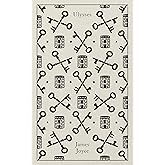
Download the free Kindle app and start reading Kindle books instantly on your smartphone, tablet or computer—no Kindle device required.
Read instantly on your browser with Kindle for Web.
Using your mobile phone camera, scan the code below and download the Kindle app.



 Audible sample
Audible sample Follow the authors
OK
Gulliver's Travels Pocket Book – 12 September 2008
- ISBN-100199536848
- ISBN-13978-0199536849
- EditionNew
- PublisherOxford University Press UK
- Publication date12 September 2008
- LanguageEnglish
- Dimensions19.56 x 2.03 x 12.95 cm
- Print length432 pages
Customers who viewed this item also viewed
Product description
From the Publisher
About the Author
Product details
- Publisher : Oxford University Press UK; New edition (12 September 2008)
- Language : English
- Pocket Book : 432 pages
- ISBN-10 : 0199536848
- ISBN-13 : 978-0199536849
- Reading age : 10 years and up
- Dimensions : 19.56 x 2.03 x 12.95 cm
- Customer Reviews:
About the authors

Born in 1667, Jonathan Swift was an Irish writer and cleric, best known for his works Gulliver s Travels, A Modest Proposal, and A Journal to Stella, amongst many others. Educated at Trinity College in Dublin, Swift received his Doctor of Divinity in February 1702, and eventually became Dean of St. Patrick s Cathedral in Dublin. Publishing under the names of Lemeul Gulliver, Isaac Bickerstaff, and M. B. Drapier, Swift was a prolific writer who, in addition to his prose works, composed poetry, essays, and political pamphlets for both the Whigs and the Tories, and is considered to be one of the foremost English-language satirists, mastering both the Horatian and Juvenalian styles. Swift died in 1745, leaving the bulk of his fortune to found St. Patrick s Hospital for Imbeciles, a hospital for the mentally ill, which continues to operate as a psychiatric hospital today.
Jonathan Swift(1667 1745), a poet, satirist, and clergyman, published many satirical works, among them A Modest Proposal. Robert DeMaria, Jr. is Henry Noble McCracken Professor of English at Vassar College. He has published widely on seventeenth- and eighteenth-century literature.

Paper Mill Press is proud to present a timeless collection of unabridged literary classics to a twenty-first century audience. Each original master work is reimagined into a sophisticated yet modern format with custom suede-like metallic foiled covers.
Customer reviews
Top reviews from Australia
There was a problem filtering reviews. Please reload the page.
- Reviewed in Australia on 26 June 2023Verified PurchaseGood
- Reviewed in Australia on 6 March 2020Verified PurchaseAs pertinent today as when it was written
- Reviewed in Australia on 2 June 2015Verified PurchaseThe dated terminology made it difficult to follow at times, but never the less a good read
- Reviewed in Australia on 7 April 2017Verified PurchaseCracking book!
Top reviews from other countries
-
 lucasReviewed in Brazil on 21 February 2023
lucasReviewed in Brazil on 21 February 20235.0 out of 5 stars Estimula reflexões sobre a sociedade. Não é cativante
Verified PurchaseA historia te faz refletir sobre sua posição na sociedade/natureza abordando diferentes óticas.
Não é tão emocionante, mas reflexiva.
Livro em ótimo estado.
-
 yvbaReviewed in France on 12 April 2021
yvbaReviewed in France on 12 April 20215.0 out of 5 stars Livre très bien agencé ( introduction, les voyages, le lexique )
Verified PurchaseC'est un des romans classiques anglais.
Ce livre est de la collection Oxford World's Classic.
Je l'avais lu en français. Je le lis en anglais et j'en tire beaucoup plus d'avantage. Parce que je suis plus attentif.
 V. N. DvornychenkoReviewed in the United States on 8 April 2009
V. N. DvornychenkoReviewed in the United States on 8 April 20095.0 out of 5 stars observations on a great classic
Verified PurchaseGulliver's Travels is such a great classic that it is difficult to write any sort of regular review. So instead I have compiled a list of observations.
Isaac Asimov, the distinguished writer, scientist, and Sci-fi buff, speculates that the made-up languages in Gulliver's Travels are basically nonsense; then he turns around and speculates that Lilliput is a corruption of "little bit". Good guess! - but maybe it's "little part" or "little pint"? Asimov also gives a other cases where highly plausible decipherments can be made.
Interestingly, Swift's made-up languages often have a definite Italian ring. Swift himself says so much when commenting on the language of Laputa. Did Swift have a particularly admiration for Italian? Did he study it?
It is usually assumed that most events and characters in Gulliver are veiled satires on England, and its misrule of Ireland. Perhaps. But maybe Swift was also poking fun at the Italian states. The "good old days" for which Swift pined may then be those of the Roman empire.
It is often claimed that the fourth book is the best, and the third book the weakest. I disagree! Possibly from a purely stylistic standpoint the fourth book, on the horse-people, IS the best. But this is not enough to make it the most interesting. The Houyhnhnms represent Swift's idea of purely rational, benign beings. They don't lie, and have virtually no crime. But frankly, they are boring! They appear to have neither dreams nor aspirations, and little imagination. They spend much of their time in busy-work - apparently so as to stay out of trouble, in the manner of certain monastic orders. Perhaps the real trouble is that humans have a limited capacity for imagining perfect goodness. Look at the divine comedy triptych painted by Bosch. Which is the most interesting panel? The one on heaven? I don't think so!
The third book (the one about the flying island of Laputa) contains a wealth of ideas - even if hastily written. Asimov points out that, unlike the other books, in the third book Swift takes considerable pains to explain "the marvelous" in scientific terms -- at least to the extent such explanations are possible. This is a hallmark of science fiction, as opposed to fantasy. A strong case can be made for Swift as the first true sci-fi writer. Consider, for example, his amazingly prophetic description of the two moons of Mars.
Here is another example of Swifts amazing prescience. It is from Laputa, and illustrates the major concerns of Laputa's scientists:
"These people are under continual Disquietudes, never enjoying a minutes Peace of Mind; and their disturbances proceed from causes which very little effect the rest of Mortals. ... That, the Earth very narrowly escaped a Brush from the last Comet, which would have infallibly reduced it to Ashes; and that the next, which they have calculated for One and Thirty years hence, will probably destroy us."
Don't we incessantly hear about the grave dangers comets and asteroids pose to us?
-
 AntonReviewed in Spain on 4 April 2014
AntonReviewed in Spain on 4 April 20145.0 out of 5 stars Es mucho más divertida la novela que cualquier película o dibujos animados que hayas visto...
Verified PurchaseQuien esté en "upper-intermediate" probablemente encontrará dificultades con el vocabulario, pues tendrá que tirar de diccionario a menudo... aparte de ello (y del segundo prólogo, que firma un tal Sr. Gulliver, que es rarito rarito, supongo que porque usa intencionadamente un lenguaje enrevesado propio de las 'formalidades' de la época), es una delicia leer este clásico. Muy recomendable












